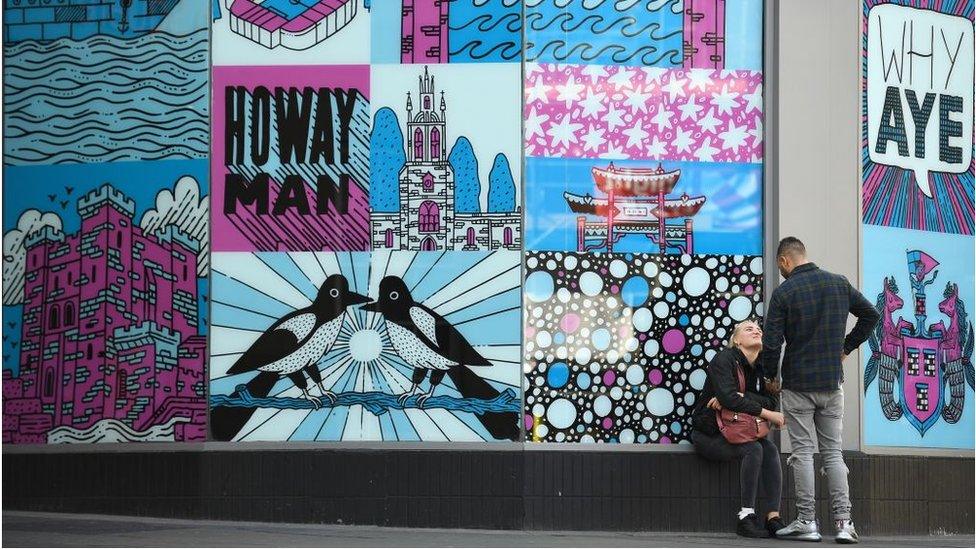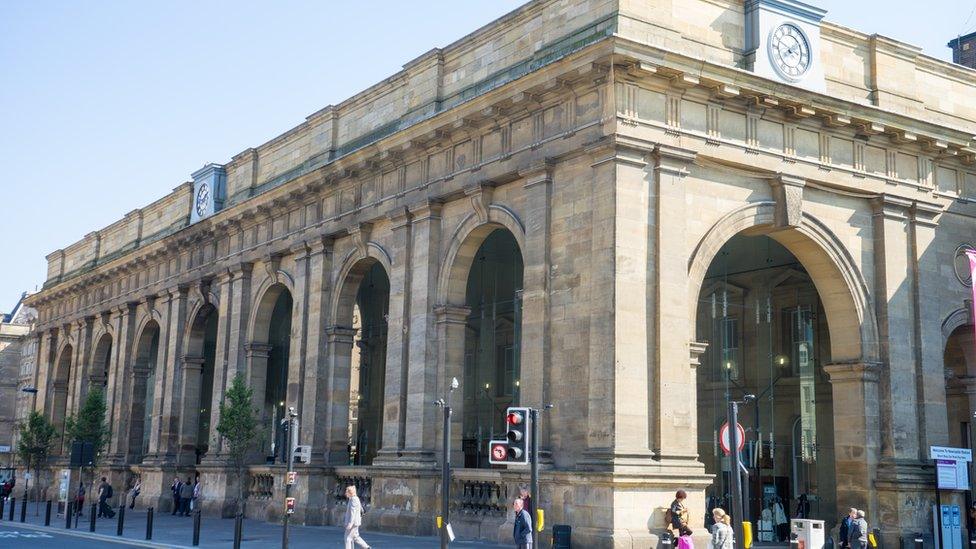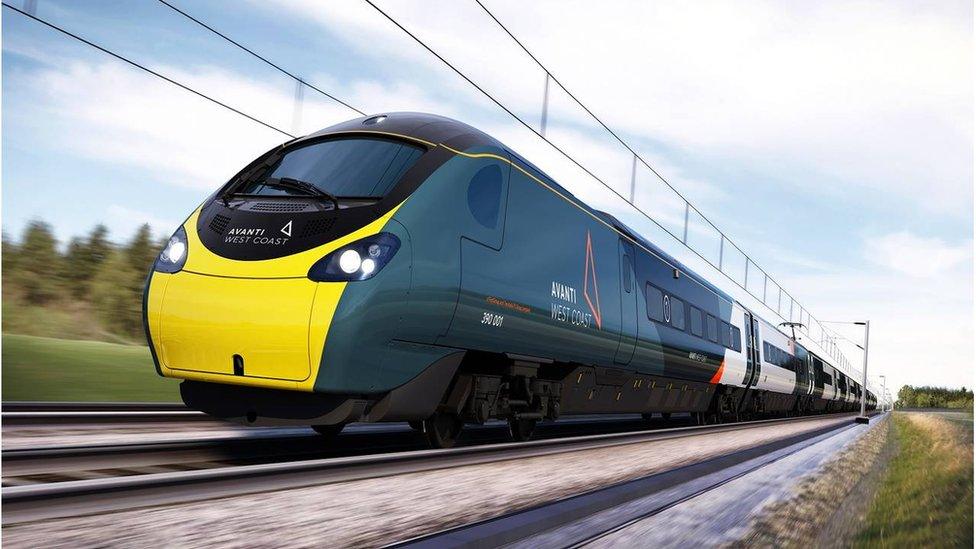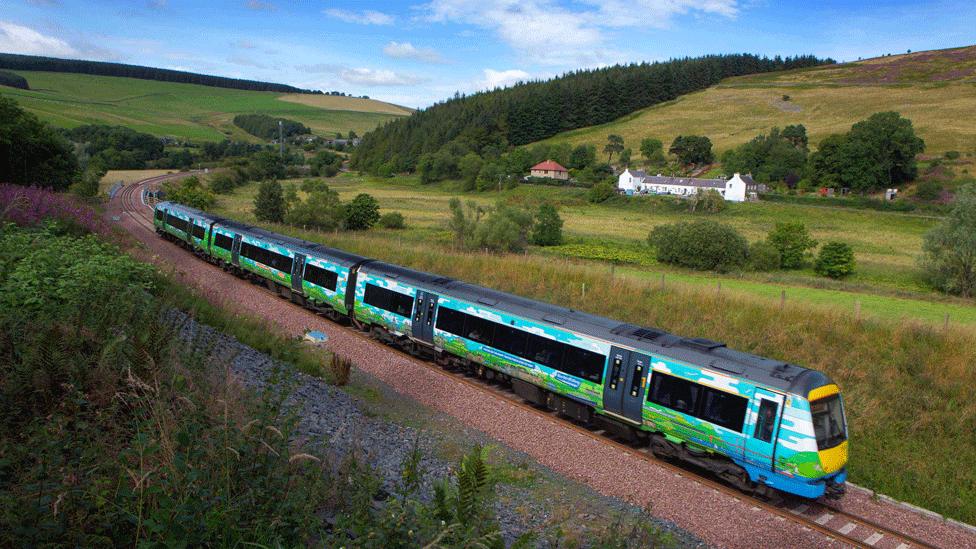East West and Northumberland rail lines get £794m boost
- Published

A rejuvenated Northumberland Line will help connect local communities to Newcastle city centre, say supporters
Two railway lines, closed to passengers since the 1960s, are to get almost £800m funding from the government.
East West Rail, which will eventually connect Oxford and Cambridge, will get £760m to open new parts of the line.
The Northumberland Line, which still carries freight, will get £34m for initial work aimed at reintroducing passenger services.
Reopening closed lines like these would help connect "left-behind" communities, Transport Secretary Grant Shapps said.
"Restoring railways helps put communities back on the map and this investment forms part of our nationwide effort to build back vital connections and unlock access to jobs, education and housing," he said.
These investments would return these routes "to their former glory" and was part of the government's "levelling up" agenda, Mr Shapps added.
Green trains
Diesel engines will initially run on the lines, but Mr Shapps said he hoped more environmentally friendly trains, for example powered by hydrogen or new battery technology, would replace them in the future.
When asked by the BBC why the lines wouldn't be electrified, he said these lines might potentially bypass the overhead wire technology altogether.
"We're building it in such a way that we can use, probably, the very latest technology, potentially, in the future," he said.
"The most important thing is the infrastructure," he said. "It's about building the stations, things you need to do no matter what kind of train you're going to run on there, if it's going to take passengers."
But Labour MP Daniel Zeichner, who represents Cambridge, said: "Every rail expert will tell you it will cost more later to electrify a line."
"In a time of climate emergency, we really shouldn't be building railway lines for diesel, it's got to be electric."
The line connecting Oxford and Cambridge would serve new housing developments, he said, and rail was "the right way to get people in and out of a city like Cambridge".
"It's very important for the UK economy, but it's got to be done in an environmentally sustainable way," he said. "It seems crazy to be building new railways which aren't electrified in the first place, and I really hope the government will reconsider."
Bletchley connection
The East West Rail investment will rebuild a train line between Bicester and Bletchley which was closed in 1968.
The project is being delivered by a publicly-owned body called the East West Company.
The first phase of East West Rail, which was completed in 2016, connected Oxford and Bicester.
But at the moment, rail passengers wishing to go from Oxford to Bletchley have to take a detour via Coventry.
The aim is to get trains running between Oxford and Bletchley by 2025, with new stations at Winslow and Bletchley.
The Department for Transport said the works will create 1,500 jobs, and have a wider economic benefit for the area.
The eventual aim of the project, which the government expects to be completed by the end of the decade, is to connect Oxford and Cambridge by rail via Bedford, taking in Milton Keynes and Aylesbury on branches.
'Levelling-up'
The Northumberland Line was closed to passengers in 1964 as part of a rationalisation of the railway network known as the Beeching cuts.
Henri Murison, director of the Northern Powerhouse Partnership, said the Northumberland Line was "a really critical piece of local infrastructure" that would help bring people in south east Northumberland and north Tyneside closer to Newcastle city centre, and closer to well-paid jobs.

Passengers would be able to take the train between Ashington and Newcastle
"Having better connectivity will help attract businesses to that area, and it will help to deliver genuine levelling-up," he said.
The new £34m investment, which aims to reopen the line between Newcastle-upon-Tyne and Ashington, will include funds for preparatory works and land acquisition.
There are plans for new stations at at Ashington, Bedlington, Blyth, Bebside, Newsham, Seaton Delaval, and Northumberland Park, in North Tyneside, as well as upgrades to the track and changes to level crossings where new bridges or underpasses were needed, the Department for Transport said.
- Published28 January 2020

- Published29 November 2017
